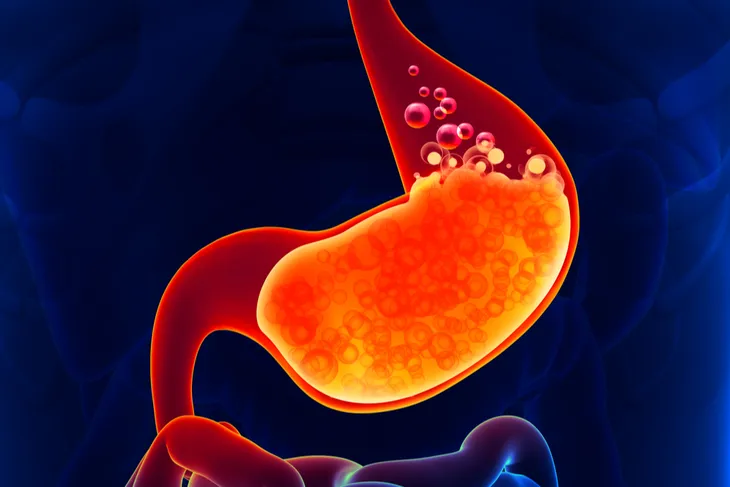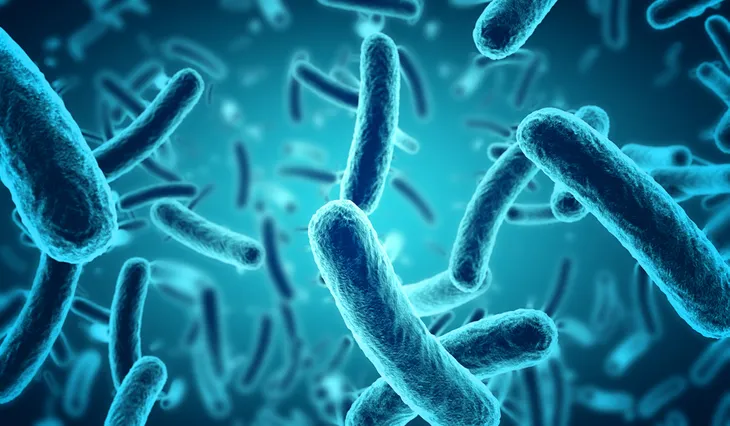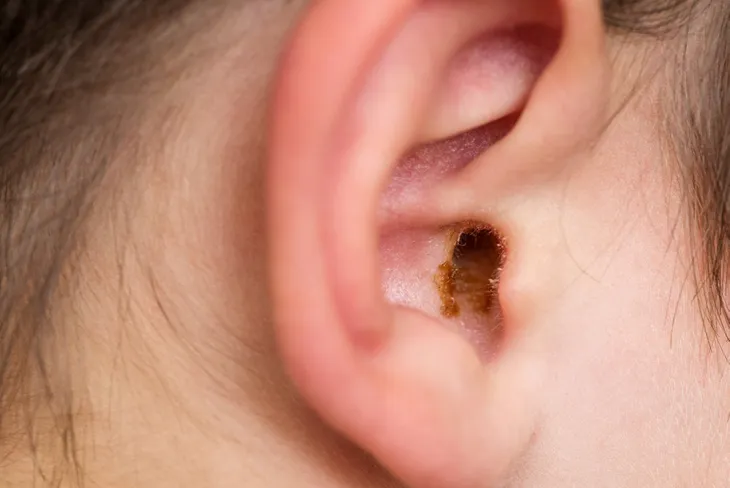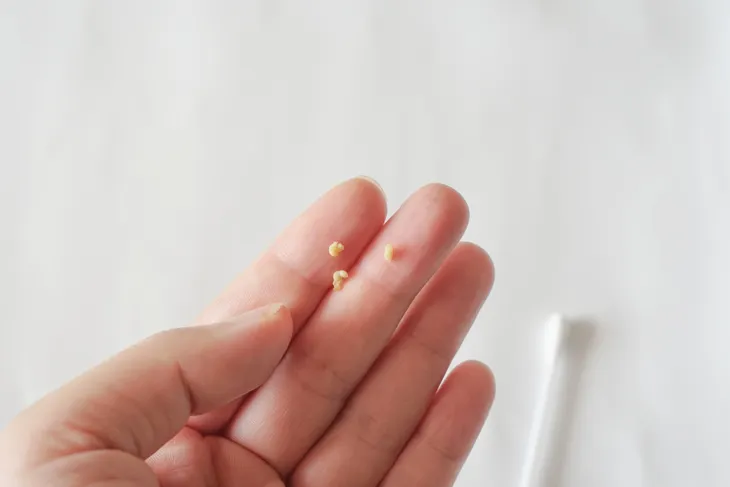- The human body is full of weird things like snot, gas, and even critters.
- For example, there could be tiny mites living in your eyelashes.
- There’s also acid strong enough to dissolve metal and more bacteria than human cells.
Even though we often take our bodies for granted, they do some amazing things. As PBS puts it, “Your body is the most sophisticated organism on earth.” Of course, some bodily functions might seem weird or gross — passing gas, throwing up, blowing your nose — but they serve important purposes.
Because of those bodily functions, there are also some pretty weird things in the human body. For instance, here are 12 things you might not realize could be inside your body right now. While many are related to normal bodily functions, a couple of them don’t serve a known purpose.
Acid
Did you know that the acid in your stomach is strong enough to dissolve metal? According to SFGATE, that’s the case. In fact, it says the pH of stomach acid is about 2. To put that in perspective, Healthline says the pH of stomach acid is “only one or two spots higher” than battery acid. In other words, it’s quite acidic.
So, why doesn’t stomach acid dissolve your stomach itself? SFGATE says that’s because “your stomach is coated with a form of mucus that protects the lining against such a strong acid.” As a result, stomach acid can break down the contents of your stomach without damaging your actual stomach.
Eyelash Mites
If creepy-crawlies give you the heebie-jeebies, then we apologize for this next one: eyelash mites. According to NPR, “just about every adult human alive has a population [of eyelash mites] living on them.” The tiny, transparent mites are too small to see with the naked eye. But up close, they look a bit like stubby worms.
They aren’t worms, though. “They’re actually arachnids — related to ticks and, more distantly, to spiders,” according to the source. Fortunately, you don’t need to hire an exterminator because eyelash mites are typically harmless. However, WebMD says some people have mild allergic reactions like itchy eyes.
Mucus
Whether you call it snot, boogers, or phlegm, mucus is one of the weird things in your body that you probably notice daily. As previously mentioned, mucus thankfully coats the lining of your stomach. But when you think of mucus, your mind likely jumps to the sticky fluid that comes out of your nose.
Even though snot can be gross and annoying, it plays an important role. According to Everyday Health, snot traps “inhaled germs, allergens, and dust before they can cause harm.” WebMD says mucus also keeps the lining of your nose moist and contains antibodies and enzymes that can help kill germs.
Bacteria
Your body is full of bacteria. Like, really full. According to HowStuffWorks, “your body is hosting at least 10 times as many microbial cells (that’s bacteria, viruses and other types of microbes) as you have human cells — probably about 100 trillion bacteria in all.”
However, that fact isn’t cause for alarm. While the word bacteria might sound scary, the source says less than 1-percent of the bacteria in your body can make you sick. As a matter of fact, your body contains a lot of good bacteria. Probiotic bacteria, for example, can help maintain gut health.
Ear Wax
Ear wax is another weird thing in your body that might seem like a nuisance. But it actually serves a similar purpose as mucus. Ear wax, also called cerumen, helps protect and moisturize your ears. “Without earwax,” Medical News Today says, “the ears would be dry, itchy, and prone to infection.”
Typically, ears are self-cleaning. So, many people don’t need to think about removing the naturally-occurring waxy substance. However, some people experience earwax buildup and blockage. If you think you have excessive earwax, then talk to your doctor about possible solutions.
Saliva
Perhaps better known as spit, saliva is so much more than something you drool. According to Millennium Dental, saliva can help you taste the flavor of food, break down food, keep breath fresh, and protect tooth enamel.
One of the weirdest things about saliva, though, is probably how much of it your body produces. The source says the average adult produces somewhere between 1- and 2-liters of saliva every day. That’s certainly a lot of spit!
Gas
While farting and burping can be embarrassing, they do have a purpose. The human body contains a lot of gas that it needs to expel. In fact, there’s so much gas in the body that WebMD says the average person passes gas anywhere from 14 to 23 times every day.
So, what exactly is gas? HowStuffWorks says the gas in your body “contains carbon dioxide, oxygen, nitrogen, hydrogen, and sometimes methane and sulfur.” While some foods can cause gassiness — high-fiber and dairy products, for example — the source says swallowed air is often the cause.
Vomit
According to NBC News, the average stomach can comfortably hold about 1- to 1.5-liters of consumed food and drinks. But beyond that point, you may start to feel nauseated. When that happens, the contents of your stomach might come back up as vomit.
Pushing the capacity of your stomach isn’t the only thing that can cause vomit, though. The Mayo Clinic says stomach flu, migraines, dizziness, and medications are just a few of the other things that can turn the contents of your stomach into vomit.
Rheum
Do you ever get “sleep” in your eyes? Perhaps you call it eye gunk, sleep crust, or even eye boogers. That eye discharge, also called rheum, is another type of mucus. The Cleveland Clinic says, “The eye crust that forms when you sleep is all about keeping things clean.”
Since you don’t blink when you sleep, the body releases eye discharge to help keep oil, dirt, and skin cells from building up in the corners of your eyes. Instead, the eye discharge traps everything and then dries out. That way, you can rub it away in the morning.
Lipomas
Lipomas are another weird but typically harmless thing that can be in the body. WebMD says they’re usually smaller than 2-inches wide and appear as soft lumps. If you press on a lipoma, then it’ll likely move a little and feel doughy.
Even though lipomas are technically classified as tumors, the source says they’re usually harmless. However, you should have a doctor look at a lipoma to assess whether or not it needs to be removed.
Poop
Little kids often think poop is hilarious, but it tends to become simply an inconvenient necessity as we grow up. Poop, also called stool, consists of food, mucus, and bacteria. Something you might not realize, though, is just how much poop is in your body.
According to HowStuffWorks, your intestines are about the length of a small garden hose — and they’re “full of waste.” The source says people typically expel between 3- and 8-ounces of stool each day. The iPhone 13 Pro, by comparison, weighs about 7-ounces.
Tonsil Stones
Unless they cause discomfort, a lot of us don’t give our tonsils a second thought. But if you have a sore throat or unexplained bad breath, then you might wonder if something is going on with them. For instance, tonsil stones are one thing that can cause those symptoms.
The Cleveland Clinic describes tonsil stones as “small lumps of hard material that form in the tonsils.” They’re made up of food debris and bacteria. The source says, “Many people have tonsil stones and don’t even know they have them.” Be sure to talk with your doctor if your tonsils bother you, though.















